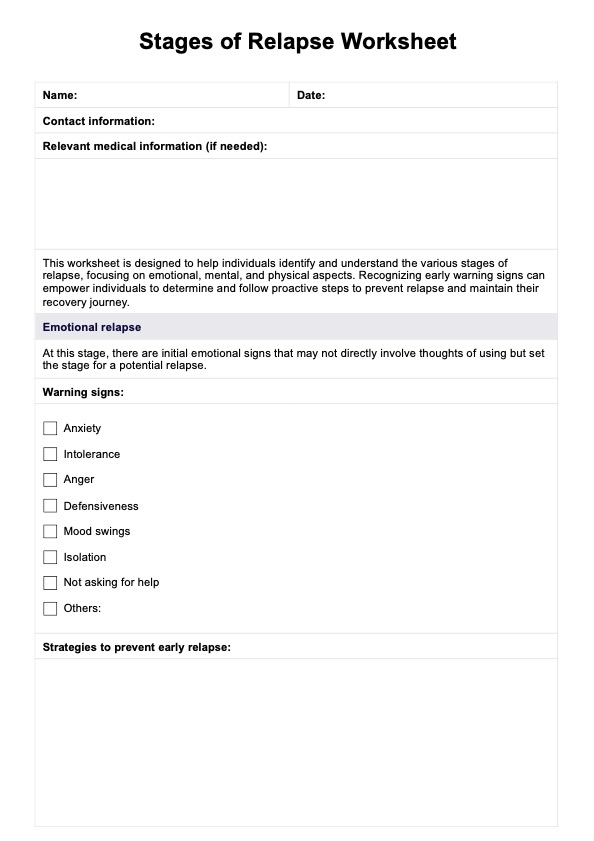Yes, with effective coping strategies and a strong support system, the likelihood of relapse can be significantly reduced.

Stages of Relapse Worksheet
Help your patient effectively track and manage their signs of emotional, mental, and physical relapse by giving them our free Stages of Relapse Worksheet.
Stages of Relapse Worksheet Template
Commonly asked questions
No, relapse is considered a part of the recovery process and indicates areas where additional support may be needed.
Relapse prevention strategies are crucial for individuals recovering from substance abuse, focusing on maintaining sobriety and managing triggers. Key strategies include identifying personal triggers—both emotional and environmental—building a strong support network through groups like Alcoholics Anonymous and adopting healthy lifestyle choices such as regular exercise, a balanced diet, and adequate sleep. Relaxation techniques like mindfulness and yoga can also help manage cravings and stress.
EHR and practice management software
Get started for free
*No credit card required
Free
$0/usd
Unlimited clients
Telehealth
1GB of storage
Client portal text
Automated billing and online payments











